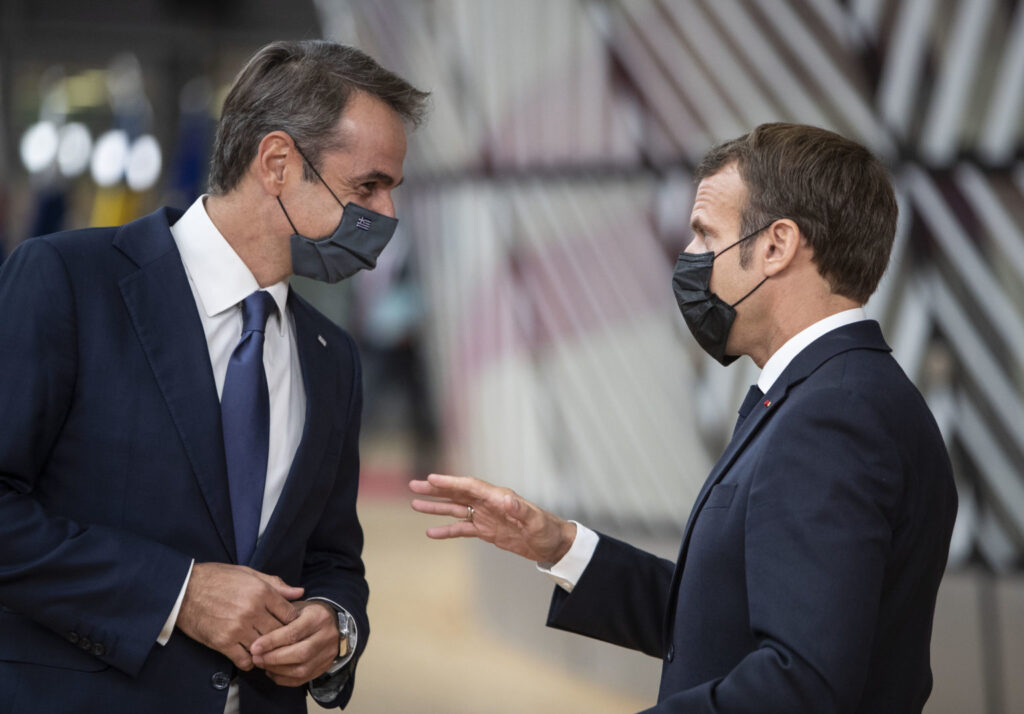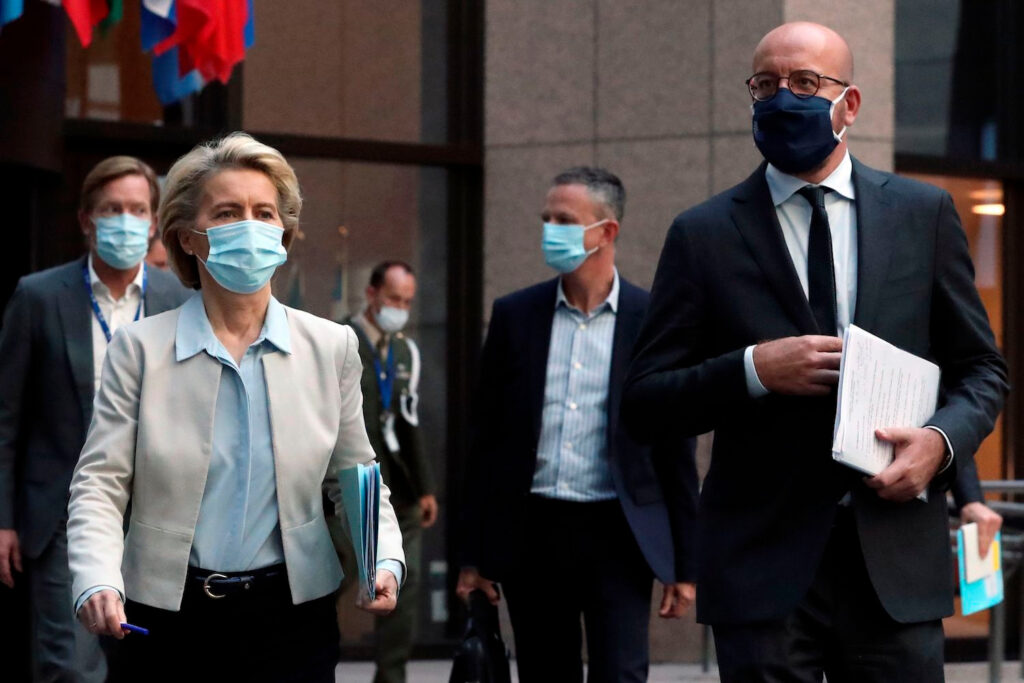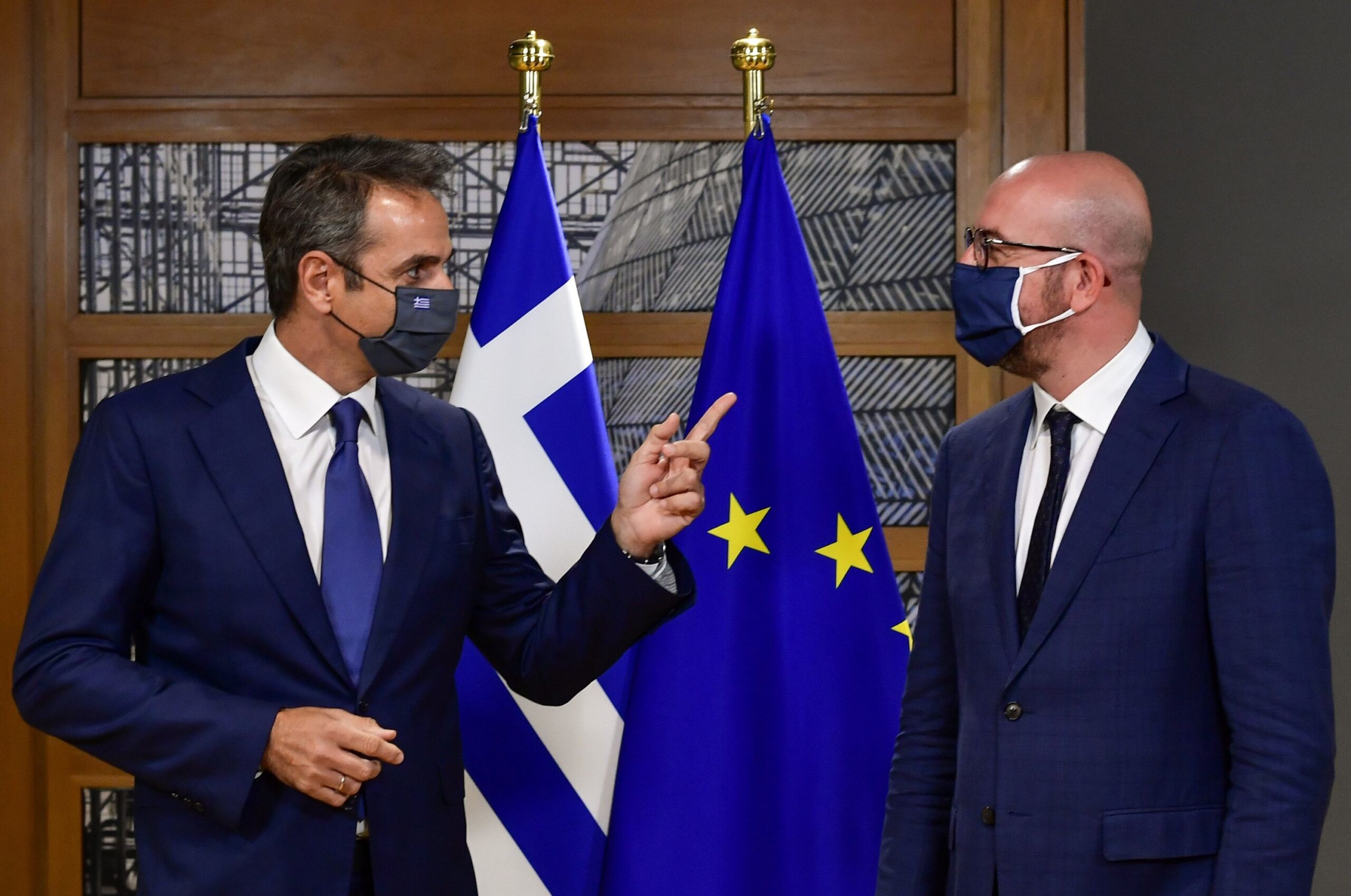Greece rejected the draft final statement for the European Council summit last night on the basis that there were no prospect of sanctions against Turkey and instead merely expressed “solidarity with Greece and Cyprus.”
The European Union’s 27 leaders met in Brussels Thursday to find ways of de-escalating tensions between Turkey and bloc members Greece and the Greek Cypriot administration over gas exploration activities in the Eastern Mediterranean region.
According to Katherimini sources, Greek officials insist that a reference to a prospective talks between Athens and Ankara must be coupled with a warning that sanctions will be imposed against Turkey should it fail to take active steps toward a de-escalation of tensions in the Eastern Mediterranean.
“The draft is unacceptable because it is unbalanced,” Greek government spokesman Stelios Petsas told state broadcaster ERT TV.

“It is an important meeting for the Euro-Turkish relations and not only for all the external relations of the EU.”
“Especially on this issue of the agenda, which is again the debate on which path Turkey is following, as it seems to be slipping away from the West, the basic text proposed as the first basis for discussion is not accepted by Greece.”
Prime Minister Kyriakos Mitsotakis met with German Chancellor Angela Merkel, European Council President Charles Michel, European Commission President Ursula von der Leyen, French President Emmanuel Macron and Cyprus President Nicos Anastasiades in Brussels last night.
German Chancellor Angela Merkel rejected the idea of imposing sanctions against Turkey, saying that they are a NATO partner and an agreement should be reached more peacefully.

“I will point out that our relationship with Turkey is indeed very complicated and that the European Union has a great interest in developing a really constructive relationship with Turkey, despite all the difficulties,” said Chancellor Merkel.
“We are partners in NATO and we depend on each other in terms of immigration and Turkey’s support in the management of the many refugees that Turkey undertakes.”
Before the start of the Summit, NATO Secretary-General Jens Stoltenberg announced that an agreement was reached between Greece and Turkey to set up a mechanism to avoid accidental clashes in the Eastern Mediterranean.
The agreement includes establishing a hotline for use between senior officials should a confrontation arise.
“I welcome the establishment of a military de-confliction mechanism, achieved through the constructive engagement of Greece and Turkey,” he said in a statement.
“This safety mechanism can help to create the space for diplomatic efforts to address the underlying dispute and we stand ready to develop it further.”
The talks at NATO headquarters were in part prompted by a light collision between Turkish and Greek frigates and increased war games by their navies in the Mediterranean.
The next meeting will discuss technical details for coordination in the Eastern Mediterranean and will be held on Oct. 5, also at NATO headquarters.
